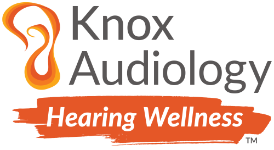Do you have ringing in your ears?

Have you ever experienced a ‘ringing’ or buzzing in your ears or in your head, say after a loud concert? Perhaps you are aware of noises in your ears when it is quiet, like just as you are going to sleep at night?
This phenomenon of hearing sounds in your ears or head that are not actually present outside is known as Tinnitus (usually pronounced “Tin-a-tus”) and is actually quite common. Around 20% of Australians suffer from some form of tinnitus. Tinnitus is often associated with hearing loss, ear infections, exposure to loud noise, stress and problems with your neck and jaw. It can be a ringing, buzzing, whooshing, whistling, pulsating or even roaring sound within one’s ears.
Although we all experience tinnitus at some time in our life, if the ringing is persistent or starts to really annoy you, its best to seek the advice of a qualified Audiologist to investigate the reason behind your tinnitus and help you understand whether there is any need for concern.
What causes Tinnitus?
Tinnitus can be brought about by many causes and associations such as:
- Extreme stress or trauma – stress has been shown to exacerbate the condition. Learning strategies to remain calm about your condition and avoiding stressful situations wherever possible.
- Loud noise exposure – temporary or long term
- Hearing Loss
- Meniere’s disease
- Certain medications
- High Blood pressure
- Vascular conditions
What do I do if I have Tinnitus?
When we hear a noise in our head or ear, it is natural for the brain to think this may be a signal that there is something wrong. This causes us to focus on the sound and worry about it. The more we do this, the more we reinforce the neural pathways between the sound and our consciousness.
It is best to discuss your tinnitus sooner rather than later with a qualified audiologist, especially if it becomes noticeably louder, is constant, is stronger in one ear, or associated with any nausea or dizziness.
How is Tinnitus tested?
The first step to addressing tinnitus is a full audiological examination – in other words a full diagnostic hearing test to look at the complete pathway of sound through your ears. As part of this assessment, we can analyse the type of tinnitus experienced so we more fully understand what you are experiencing. Knowing that someone else understands your tinnitus in itself can be a huge relief. Recommendations for any further assessment and a plan for management can then be made.
Can Tinnitus be cured?
If you google this, you will see many proclamations of tinnitus cures, however there is no medication option that has been proven to actually cure tinnitus. But hope is not lost.
Known as “Tinnitus Retraining Therapy”, it is possible to retrain your brain not to focus on the tinnitus noise so that you can live without the bother and impact of tinnitus. Simple exercises can help you to become less aware of your tinnitus, even to the point where you don’t notice it anymore
The aim of Tinnitus Retraining Therapy is to acknowledge that the tinnitus is there, but that it is of no concern and to ‘put it out of our minds’. At first, this may feel easier said than done but over the course of a few months doing simple exercises such as focusing on other sounds, like a radio or background music, we can become less aware of our tinnitus, to the point where we don’t perceive it anymore.
Can Hearing aids help?
If a hearing loss is also present, the fitting of a hearing aid can help with the perception of tinnitus by focussing our minds on external sounds and reducing our perception of the internal tinnitus. Another device that can be useful is a tinnitus masker. This is a small device that sits in the ear and looks like a hearing aid and plays a gentle alternative background sound like the ocean, which takes our mind off the tinnitus.
More Tinnitus questions?
The highly skilled Audiologists understand tinnitus and are ready to answer your questions and help you work with your tinnitus, not against it. Let us remove the worry and help you to live a more relaxed life regardless of your tinnitus. Call today to book your tinnitus assessment appointment 9800 5697
